Home » Articles » Why Should I Study Geology in the Field?

Why Should I Study Geology in the Field?
Article by Lee J. Suttner, Department of Geological Sciences, Indiana University
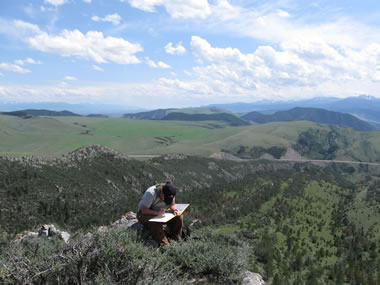
Independent problem-solving is the foundation of the self-confidence one derives from studying geology in the field.
"My colleagues and I firmly believe that the best geologists are those who see the most rocks." |
As part of your curriculum for a baccalaureate degree in geology, you have been strongly advised, perhaps even required, to enroll in a summer field course. However, income from summer employment is critical if you wish to remain in school. Is it really THAT important that you not only surrender opportunity for summer income, but also invest even more for the travel and additional costs associated with enrolling in a distant field course?
The answer is absolutely yes! But why?
Just a handful of words - self-confidence, scale, integration, immersion, and problem-solving - together forming the appropriate acronym S.S.I.I.P. (something you will often do with your remaining few ounces of water near the end of a hot day in the field) is the justification. And your summer likely will be the most memorable of your life.
Self-Confidence
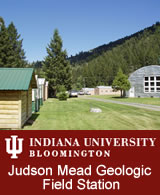 |
In order to become a geologist you must do geology - and geology is best done in the field not in the classroom. It is in the field where you often learn what you already know. Here one can apply knowledge to solving a real problem the way a professional geologist solves a problem. Here is where you form the self-confidence to actually do geology. But beware. The rocks and landscape do not give up solutions easily, and sometimes do not seem to follow the rules that you have been taught. The route to gaining self-confidence in the field will be paved with much humility. Moreover, your ability to do geology in the field may not be related to how well you have performed in the classroom.
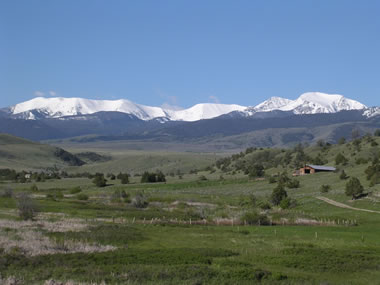
Tobacco Root Mountains. The range is cored by Archean metamorphic rocks intruded by a Cretaceous pluton. The flanks of the mountains consist of Paleozoic and Mesozoic rocks deformed by supra-crustal fold/thrusting and basement-cored uplifting. Cenozoic normal faults truncate the mountain front. Younger basin fill derived from the core of the range is in the foreground. Truly remarkable structural, tectonic and stratigraphic diversity exists within a 50 km radius of the Field Station.
Scale
Much classroom instruction relies heavily on some form of simulation (e.g. sketches, slides, maps, seismic images, even arm-waving). Simulation requires imagination. But imagination often is dimensionless; it is easy to lose appreciation of scale and size, particularly in interpretation of geologic structures. Until one has actually seen the existing range of scale of structures, facies relationships and more in the field the important sense of scale cannot be appreciated.
Geology Field Camps |
Integration
In the classroom effective instruction in structural geology is possible without sizeable integration of stratigraphy. Much stratigraphy can be taught with little integration of sedimentology, and much sedimentology can be taught without detailed petrology. Normally this compartmentalized form of instruction is ineffective in the field. In mapping for example, many structural problems are impossible to solve without some stratigraphic, sedimentologic and petrologic knowledge and data. Problem solving here, as will be true throughout your professional life integrates and synthesizes the knowledge of multiple disciplines brought from the classroom. This forces one to think and create knowledge rather than to simply memorize and consume knowledge.
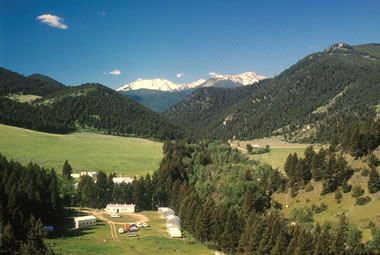
Over 5000 students from over 200 universities and colleges have taken their summer field course at the Indiana University Geologic Field Station in the Tobacco Root Mountains of southwest Montana. Many have said that no course has touched their hearts and inspired their minds more deeply than this course.
Immersion
The rewards of concentrating solely on geology for an extended period of time are many. How well one performs in the integrative problem solving environment and how much they enjoy their field experience, often working in difficult physical conditions, can be an important career determinant.
Long-term continuous concentration on a single problem also permits in-depth thought and reinforcement of skills. Finally, an extended period of working, playing and living together with other students and faculty teaches all-important team skills. It is also an important part of the foundation of the uniquely strong fraternal relationships that exist among geoscientists.
Problem Solving
Early in my position as Academic Director of the Indiana University Geologic Field Station in Montana, I solicited input on the importance of teaching geology in the field from over 100 geoscientists in industry, academia and government. Virtually all agreed that the most important goal in teaching in the field is to enhance students' skills in geologic problem solving --- first and foremost the difficult skill of asking the right questions, but also making the right observations (including not just how to look but to actually see), systematically recording data (often on maps or sketches created in the field), and formulating and testing hypotheses, usually with a limited data base.
In short, it is in the field where multiple times daily you will have the opportunity to enhance your skill in use of the scientific method.
Consider your summer of learning geology in the field to be the culminating capstone experience in your education. It very well could be a critical key to obtaining employment, especially in the energy industry. Recruiters and managers know that so-called Nintendo geologists (i.e. those with high-level computer skills, but little or no field experience) are at a disadvantage in exploration activities. Many of these geologists are sent back to the field in order to fill this significant gap in their education.
About the Author
Lee J. Suttner is the Robert Shrock Emeritus Professor of Geological Sciences at Indiana University. He has received the Neil Minor Award from the National Association of Geoscience Teachers, the Indiana University President's Award for Distinguished Teaching, and AAPG's (Eastern Section) Distinguished Educator Award, all largely in recognition of his over 45 years of teaching geology in the field at the Indiana University Geologic Field Station.
| More General Geology |
 |
Fossils |
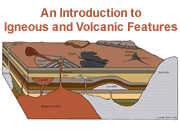 |
Igneous and Volcanic Features |
 |
Geology Dictionary |
 |
Diamonds |
 |
Minerals |
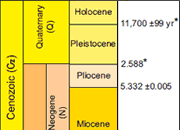 |
Divisions of Geologic Time |
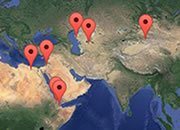 |
Land Below Sea Level |
 |
Gifts That Rock |

Find Other Topics on Geology.com:
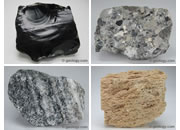
|
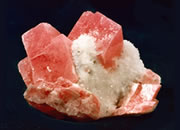
| ||
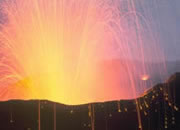
|

| ||
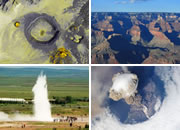
|

| ||

|
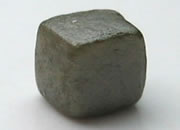
|
